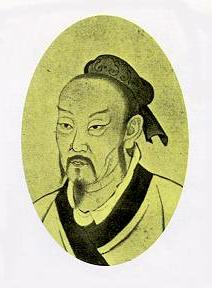Chinese philosophy books that I’ve read and think you all might enjoy.
Each book below comes with links, a quote describing it, and usually can be found for free online in pdf form for most of the old editions that have reached the public domain.
Let me know if you like, hate, or think I should add a specific book to this list by commenting below. Also, sign up for the weekly newsletter to get books, resource recommendations, and more.

Tao Te Ching
“Lao-tzu’s Tao Te Ching, or Book of the Way, is the classic manual on the art of living, and one of the wonders of the world. In eighty-one brief chapters, the Tao Te Ching looks at the basic predicament of being alive and gives advice that imparts balance and perspective, a serene and generous spirit. This book is about wisdom in action. It teaches how to work for the good with the effortless skill that comes from being in accord with the Tao (the basic principle of the universe) and applies equally to good government and sexual love; to child rearing, business, and ecology.” Book Link
 The Analects of Confucius
The Analects of Confucius
“The Analects are a collection of Confucius’s sayings brought together by his pupils shortly after his death in 497 BC. Together they express a philosophy, or a moral code, by which Confucius, one of the most humane thinkers of all time, believed everyone should live. Upholding the ideals of wisdom, self-knowledge, courage and love of one’s fellow man, he argued that the pursuit of virtue should be every individual’s supreme goal. And, while following the Way, or the truth, might not result in immediate or material gain, Confucius showed that it could nevertheless bring its own powerful and lasting spiritual rewards.” Book Link
 The Mozi
The Mozi
“The Mozi is a key philosophical work written by a major social and political thinker of the fifth century B.C.E. It is one of the few texts to survive the Warring States period (403-221 B.C.E.) and is crucial to understanding the origins of Chinese philosophy and two other foundational works, the Mengzi and the Xunzi.” Book Link
Mengzi

“Bryan Van Norden’s new translation of the Mengzi (Mencius) is accurate, philosophically nuanced, and fluent. Accompanied by selected passages from the classic commentary of Zhu Xi–one of the most influential and insightful interpreters of Confucianism–this edition provides readers with a parallel to the Chinese practice of reading a classic text alongside traditional commentaries. Also included are an Introduction that situates Mengzi and Zhu Xi in their intellectual and social contexts; a glossary of names, places and important terms; a selected bibliography; and an index.” Book link
Xunzi
“Through essays, poetry, dialogues, and anecdotes, the Xunzi presents a more systematic vision of the Confucian ideal than the fragmented sayings of Confucius and Mencius, articulating a Confucian perspective on ethics, politics, warfare, language, psychology, human nature, ritual, and music, among other topics.” Book Link
The Path: What Chinese Philosophers Can Teach Us About the Good Life
“Astonishing teachings emerged two thousand years ago through the work of a succession of Chinese scholars exploring how humans can improve themselves and their society. And what are these counterintuitive ideas? Transformation comes not from looking within for a true self, but from creating conditions that produce new possibilities. Good relationships come not from being sincere and authentic, but from the rituals we perform within them. A good life emerges not from planning it out, but through training ourselves to respond well to small moments. Influence comes not from wielding power but from holding back. Excellence comes from what we choose to do, not our natural abilities.” Book Link
Bonus Book
Braiding Sweetgrass: Indigenous Wisdom, Scientific Knowledge and the Teachings of Plants
“As a botanist, Robin Wall Kimmerer has been trained to ask questions of nature with the tools of science. As a member of the Citizen Potawatomi Nation, she embraces the notion that plants and animals are our oldest teachers. In Braiding Sweetgrass, Kimmerer brings these two lenses of knowledge together to take us on “a journey that is every bit as mythic as it is scientific, as sacred as it is historical, as clever as it is wise” (Elizabeth Gilbert).” Book link
Let me know if you like, hate, or think I should add a specific book to this list by commenting below.


Hi Lowell,
The Bonus Book caught my intention because of it’s title. It is funny because I first replayed at the other blogpost and you will read or have read about my book I’m now reading in.
Last month I visit a lecture from the Dutch Indian expert and author Serv Wiemers. When he started the lecture he first burned some sweetgrass for a positive vibe. I will share a link about Serv in English. I also have read his book and I believe it is still only available in Dutch language.https://www.universiteitleiden.nl/en/news/2019/01/from-law-student-to-indian-expert
I keep this book in mind and for now shared it to my booklist.